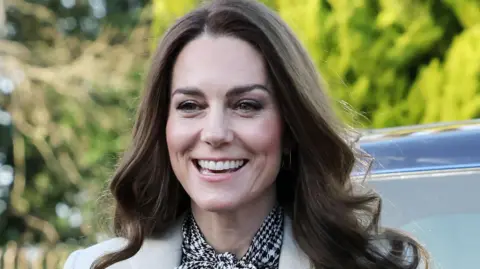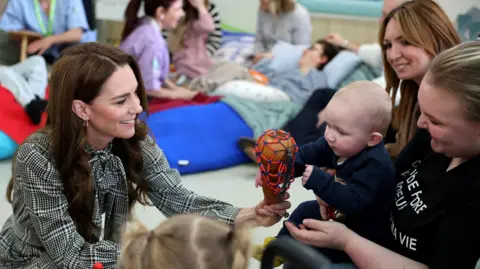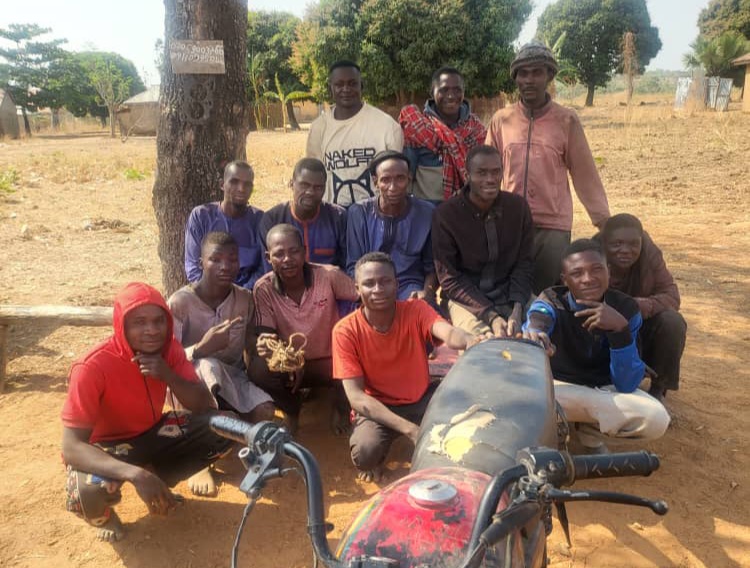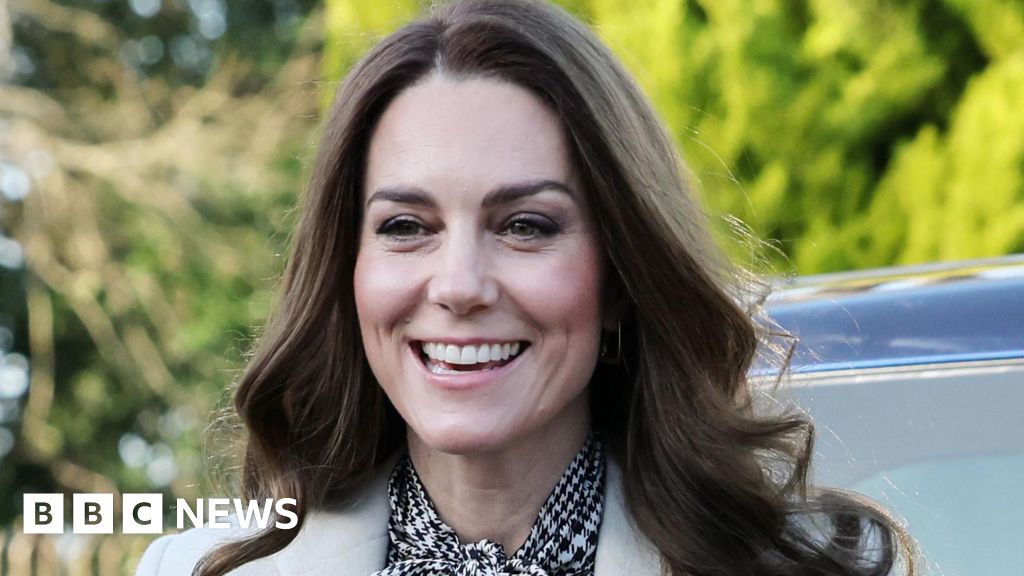Sean Coughlan
Royal correspondent

 PA Media
PA Media
Catherine says too many people can feel isolated and vulnerable
The Princess of Wales has made a personal call for a "rebalance" in society to prioritise physical and mental health and to promote greater compassion.
Catherine, who is gradually returning to work after her cancer treatment, is launching another stage in her early years education project, which aims for a greater emphasis on teaching emotional skills.
"At times, it can feel like the world is filled with mistrust and misunderstanding, leaving many people feeling isolated and vulnerable during difficult times," writes Catherine in a foreword to her charity's report.
"The impact of this - poor mental health, addiction and abuse - can be devastating, for individuals and for society."

 Reuters
Reuters
Catherine on a visit this week at a children's hospice near Cardiff
The Shaping Us early years project has published a new framework document that says tackling such deep-rooted problems depends on how children are taught from their earliest days and that should include building social skills and "positive relationships".
Catherine, who has called the early years project her "life's work", writes that to "create a physically and mentally healthier society, we must reset, restore, and rebalance. We must invest in humankind".
"That means taking a profound look at ourselves and our own behaviours, emotions, and feelings."
It's expected that the princess will carry out an engagement next week to launch a project based on her ideas.
The call for more compassion and empathy follows other personal messages from Catherine, after her tough experiences with health problems over the past year.
At her Christmas carol concert she called for "love, not fear" and said "love is the light that can shine bright, even in our darkest times".
The princess, who revealed she is in remission from cancer, hugged patients at the Royal Marsden hospital where she had been treated.
She was also hugging and holding hands with Holocaust survivors at a memorial event earlier this week.
The latest publication from her Shaping Us project, supported by a range of experts in early years health and education, calls for more emphasis on nurturing emotional and social connections from children's earliest days.
The project was founded to raise awareness of the importance of the first five years of a child's life and that experiences in those early years can have a profound long-term influence on adult life.
"It is time that we recognised and acted upon the undeniable significance of social and emotional skills and give them the recognition they deserve," says Christian Guy, executive director of the Royal Foundation Centre for Early Childhood.
"Getting this right in early childhood, when we lay the foundations upon which these skills continue to grow throughout our lives - could have a truly profound impact on the future of individuals and of our society."
Vicky Nevin, policy manager of the NSPCC, welcomed Catherine's initiative and how it highlighted the importance of young children's wellbeing.
"We know that raising a young child can be challenging and stressful. Families need to know where to find trusted advice to do the best for their baby. When parents feel supported, they are better able to support their children," she says.
"That's why health visiting and Family Hubs should be accessible to every family."
An annual report in December 2024 from England's education watchdog Ofsted warned of a widening social divide in access to childcare.
It warned of childcare "deserts" which were particularly likely in areas of low incomes and high levels of child poverty.
Last Spring, research from the Coram Family and Childcare charity showed parents struggling to find and afford childcare places.
Coram's managing director Ellen Broome said families faced "a double whammy of above inflation price rises and dramatic drops in availability".



 22 hours ago
6
22 hours ago
6















 English (US) ·
English (US) ·